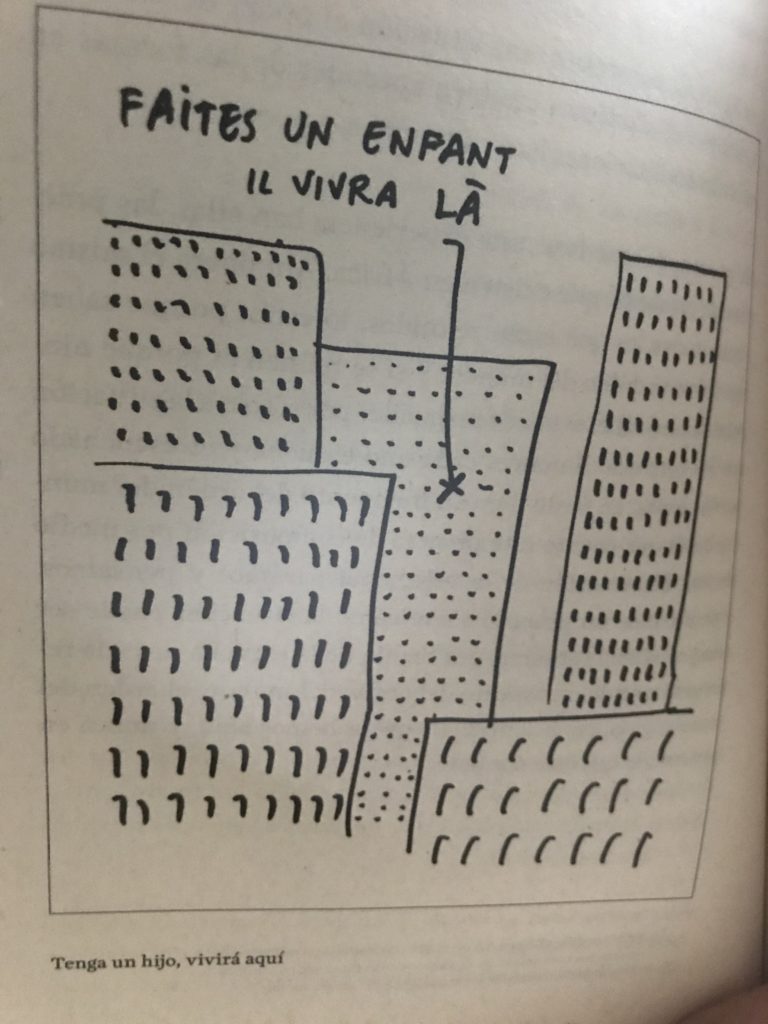Querida Paz,
With a deep nostalgia for the the times in which we used to go to parties, I remembered a night in Amsterdam last year, I was drunk af, craving for everyone’s attention, flirting with all the Europeans around me. At some point I started to feel kinda trapped because of the climate emergency and the end of the world. Borracha and sad, I was complaining to this guy who was at the party too and he said that I shouldn’t be worried because he read that there was a new technology that allowed for a direct decarbonization of air so everything would be fine.
I remembered that moment after reading this article on The Guardian about Microsoft’s plan to have a negative carbon footprint, this means they expect to remove more amounts of carbon from the atmosphere than the amount of carbon they produce. They are going to achieve this goal by, among other things, the implementation of these machines that suck carbon from the air. Just as the guy from the party told me.
In the article, there are scientists explaining that that technology is a feasible option, and moreover, that those developments are our only choice. I think it’s fantastic to try something like this but I can’t help boring everyone with the issue of the economic model behind these ecological endeavors. In the case of Microsoft, for example, I cannot find a serious questioning to their extractivist practices, in fact, they will keep up with their plan of using and extracting oil like madmen, consequently, destroying ecosystems. I also think about the case of Amazon, the corporation also declares that they care about reducing their carbon footprint but they didn’t doubt even for a second in firing the employees who were last month criticizing the environmental practices of the company, everything looks even worse if we consider that they’re having a blast becoming richer and richer with the pandemic and evading taxes like there’s no tomorrow.
So I feel we’re living within this dialectic. Cachai? On one side we see good intentions and on the other there is this neoliberal virus that makes us distrust so much because it is a socio-economic structure that will eventually coopt any decent thing that emerges. Anyway, I still get excited with news such as the gringo scientists who invented a solar energy cell more powerful than the theoretical capacity, or the advances on the magnetic mega fast train that will go from Amsterdam to Paris in 90 minutes. I also thing about that beautiful part in La Peste that claims that humans are more good than bad. Also, how could I ignore the importance of technology to help to overcome cultural struggles, I say this as the most grateful person in the world for my robotic vacuum/cleaner and my dishwasher, without them I would be hasta el pico in this pandemic, in which it has been hyper demonstrated that domestic work and care is not balanced in terms of gender.
So I want to end this letter being an optimist, optimist for the installing of a radical change of cybernetic socialism that will take us out of this hole. I’m inspired for example by Mutual Aid Disaster Relief, a very simple use of technology with the capacity of promotion of real impact. I can also refer to myself (heehee) with this short article I wrote last year for a seminar at university, it is about EZLN and about how their political organization must be a key referent to ecological movements.
This is it, amiga. I know the events in Chile are awful, just yesterday I watched how the criminal government of Sebastián Piñera was using tear gas against the people of El Bosque, the area of Santiago where I grew up, because they were protesting for the lack of money, food and healthcare. I can’t really stand this authoritarian regime controlled by imbeciles. Amiga, I wish you lots of strength, have this list with the new Charli XCX’ album and this picture of some geese I saw the other day in the street, with the quarantine they now own the streets of Rotterdam!
Tqm
D

Amiga D:
“The neoliberal pundits are now silent, those who destroyed the public system are hiding, but they will come back after the end of the pandemic. They must be impeached, so to speak—forced to show themselves; they must be treated as the fascists were treated after the end of WWII.”
BOOM!
I start my letter con todo sino pa qué.
The quote is from Franco “Bifo” Berardi in a very interesting interview about COVID-19. It’s, in a way, amusing read it now (it is from April, I think) because Bifo spoke back then that the protests against neoliberalism in 2019 had entered a kind of paralysis previous to the collapse due to fear of contagion. But as only the Latin laboratory of neoliberalism can know, the fear of contagion, the fear of disease and, ultimately, the fear of death is a luxury that only a few can afford and people -now hungry- have returned to the street protests.
Oh, regarding the Microsoft intentions that you mentioned, I had just come across an article by Benjamin Bratton, who precisely talked that “we need to not only radically cut carbon emissions, but also subtract and sequester the many billions of tons of carbon already in the atmosphere.” In this task, certain naturalistic-technophobic visions are again present in some of the ideas of green deals. In this context and to avoid any confusion, it seems imperative to clarify that we will not be able to get out of the climate crisis without technology, science, and without rethinking our entire human-environment relationship.
Concerning COVID-19, Bratton also names something that I found quite interesting. For him, the epidemiological view of society is changing the conversation about surveillance, which opens the debate. For Bratton, “It is a mistake to reflexively interpret all forms of sensing and modeling as “surveillance” and all forms of active governance as “social control.” We need a different and more nuanced vocabulary. ” I think he is right. Today some of these technologies – after a proportionality test – could be necessary and even desirable: if we equate them with “surveillance,” then the other toxic surveillance technologies could also be classified as necessary and even desirable. Here, I think, it’s critical to restrict any opportunity to the marketing of that harmful industry, which knows how to sell its products as public policy to the most stupid authorities.
But what I really wanted to tell you in this email, D, is that I read a small book by Isabelle Stengers called “How to think together.” I think it was the last thing I bought before confinement. There, she describes that what impelled her science studies was to realize that capitalism works not only as exploitation but also as systematic expropriation of what makes us capable of thinking together about the problems that concern us. The train of progress (which is taking us to the abyss in the context of the climate crisis) has no time for reflection. If not now, it is the same progress (in the form of technology) that will give us the answers in the future. So Stengers says that deceleration (a concept widely used in the climate emergency regarding economic growth) also means slowing down, taking the time to think about reasons with others, in “civilized relations” that are very contrary to the logic of the homo economicus.
In this context, I thought that “predictive” technologies -like artificial intelligence- are an ideal ideological space to not think with others and to deny ourselves deliberative spaces. Stengers adds that this denial has led us to be very poorly prepared for the challenges of the 21st century. Today, amid a pandemic and in a climate crisis, I can only agree with her. In fact, in Bratton’s piece, he says something like COVID-19 demanded coordinated and transnational responses but, look, we are sinking here. What to expect with an obviously greater challenge like the climate crisis? Perhaps, as they say in the Bifo interview, we are paralyzed since it is evident now that the “technology heroes” will not get us out of this disaster.
Anyway, dear friend, I’m still locked up. Meanwhile, I dream that I go out, and I am reunited with many people in a square. That I am happy, just the way I am when it rains. I can even feel the winter sun on my back. Then look at myself in the reflection of the showcases, and I realize that I am not wearing a mask. I am, rather, the only person without a mask.
No one can say that these are not curious times also for our subjectivities.
Here is a drawing from the Stengers book <3
Abrazooooo
p.
